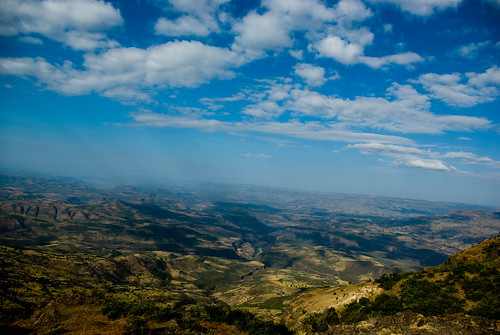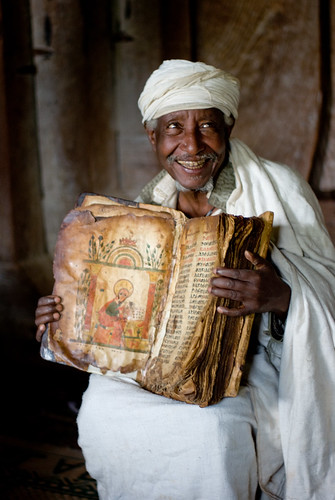I am so very excited to share one of my favorite sites with you. Where the Road Goes is the epitome of excellent travel writing - Richard Stupart shares the essence of thoughtful travel and extraordinary travel photos. Can I tell you how much I love this site? Richard's writings are what you WISH you could write about travel - picking up on experiences, people, cultural connections. Add to it his gorgeous photos - it seems that he's got a direct line to the heart of travel. Whether it is the excitement of planning, or the gentle reminder that coming home and re-integrating has its own challenges, Richard covers the gamut of the travel experience.
We were lucky enough to sit down and chat with Rich, about his site, his recent Cape to Cairo journey, travel planning tips, and more. Here's what he had to say...

WE: Please tell us about your site, Where The Road Goes...
RS: The site began sometime around 2007 as a purely personal blog ahead of a planned backpacking journey to Southeast Asia. In the years that followed (and after another journey to explore Mozambique), it grew to include photography and slightly more considered writing than before - though always on the same general ideas of travel and challenging myself and readers to think a little more deeply about what they want out of life and trying to meet those fundamental ambitions. The blog title came about as a tip of the hat to the way in which life so often unfolds in a direction different to what we had in mind - we sometimes just need the courage to follow it where it takes us, even if those places are going to make us different people.

A view of Ethiopian scenery
WE: What inspired you to share your travel experiences online?
RS: In the very beginning, it was my brother who had taken up teaching English in Japan that inspired me to take up blogging. I thoroughly enjoyed many of his posts from the year he spent in the village of Sarafutsu and decided to give the travel blogging thing a shot. Subsequently, I have come to really enjoy the challenge of writing pieces and trying to capture specific thoughts or feelings that have come out of traveling over the years.

Ethiopian priest on Lake Tana with an 800yr old goatskin bible
WE: You recently finished a trip from Cape to Cairo...can you please share more about your journey?
RS: I was originally planning to simply travel Ethiopia for a period with a friend who later had to pull out due to life getting in the way. Having nobody to plan for except myself, I decided to expand the project to traveling from Cape Town to Cairo on public transport. The trip overall took just under 60 days, though on returning it felt as if an entire lifetime had elapsed. From spending some time at a mission station in Zambia, to 36 hours on a train through to Tanzania and two nights sitting atop a truck in Northern Kenya, it was unforgettable. It made me completely rethink my ideas of Africa, as each day disproved yet another of my ideas of what life on the continent is like. Coming back, I have four moleskines of stories that I will be picking through, working on and smiling wistfully over for many months to come.

The guard who protects where the bible and other artefacts are stored (Ethiopia)
WE: What are your travel experiences? Favourite places?
RS: I loved Sudan for the people, which was surprising given the bad press that the country as a whole receives over Darfur and Southern Sudan. Wherever I went, speaking almost no arabic, people went unbelievably far out of their way to help me find my next destionation, a hotel, anything I was struggling with. It's one of my fondest surprises. Other memories are more of the people met on that particular journey, whether on the long train ride to Tanzania, on a ferry to Egypt or just sitting chatting during extended waits. As strange and interesting as you think your own story is, there is always someone on your path whose history you can only listen to in wide-eyed wonder.

Egyptian hieroglyphics from Karnak temple
WE: How do you recommend travelers give back, while exploring a new place?
RS: I feel that there is a value to being willing to stop and slow down enough in places to try to get to know the people you might meet along the way on a level deeper than simple daily transactions. Just as many travelers reflect on the learning experience that really talking to different people results in, I think that this process works in both directions. As the foreigner, you are just as much a source of learning and a lesson in tolerance and broadened horizons to those you talk to as they may be to you.
Some countries, such as Ethiopia, are a stark warning of the damage that well-intentioned, but poorly-reasoned giving can cause. Whether it is careless travelers dropping money everywhere and reinforcing expectations of charity or self-involved NGOs more concerned with perpetuating notions of Africans as starving and desperate, I feel it is important for you to think through the consequences of where and how you would like to have an impact in the communities you interact with. There are groups and projects with well thought-out activities which lead to genuinely developing the substantial freedoms of the communities they work with, and these are much more worthy of your time and effort. It's worth doing your homework - if volunteering is your motivation - to see what material successes the groups with which you will be working have achieved, or whether it is simply a field school for those wanting to feel good about their contributions.
Finally, if you will be traveling through Africa, write about it. Every story that helps to paint a picture of a continent where families go about normal activities, every story that reminds us that for the most part people have much in common, does much to help readjust people's perception of a continent often much maligned in the media. Africa is not only wars and famine and poor leadership - and people need to tell the stories that are less sensational, but a truer reflection of the continent.

Pyramids, Egypt
WE: You pay particular attention to trip planning - can you share some tips with us?
RS: Besides the obvious (a good deal of Googling), try to get in touch with people who have actually traveled in the places you intend to go. They can often provide useful and recent information that you would not be able to find in any published reference. If you will be traveling far off the beaten track (atop a truck, alone and a day from a major town as one example), make sure that you have at least a basic familiarity with first aid and some relevant supplies. I found that leaving a general route map with family and close friends and checking in wherever I could also meant that someone would have an idea of where I should more or less be, so that if anything happened, people back home would have a fairly accurate idea of where I might be.
Also, take zip lock bags. And a headlamp. They were afterthoughts, yet by far two of the most useful items in my entire pack.
WE: What's up next for you?
RS: From previous traveling, I knew that coming back from such a journey to the familiarity of life exactly as I had left it could only lead to that particular melancholy unique to travelers trying to readjust to a life that feels a little too small. As a means of dealing with it, I had decided before I left to enroll in a journalism diploma this year as a learning adventure that provides the continued sense of challenge that I would otherwise have deeply missed. I've also long wanted to learn to do more with my blogging and photography, and this neatly affords me a new area of creative improvement while I wait for the inevitable return of my wanderlust.
WE: Is there anything else that you would like to share with us?
RS: By far the hardest part of my most recent journey from Cape Town to Cairo was mental. Being willing to step out and get on the first train of the journey and the over-thinking that comes before it was more difficult than pretty much anything on the journey itself. Whatever your grand ideas or wished journeys, don't let your fear of stepping out keep you from beginning. After the first step, it always gets easier.
WE: Thanks so very much, Rich. It is rare to find someone that thinks - and writes - so compellingly and thoughtfully about travel. I look forward to learning more from you!
For more information, please see:
http://wheretheroadgoes.com/
Photos courtesy and copyright Richard Stupart
